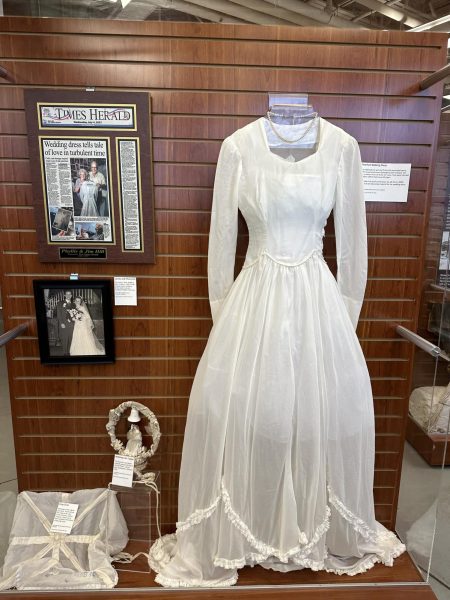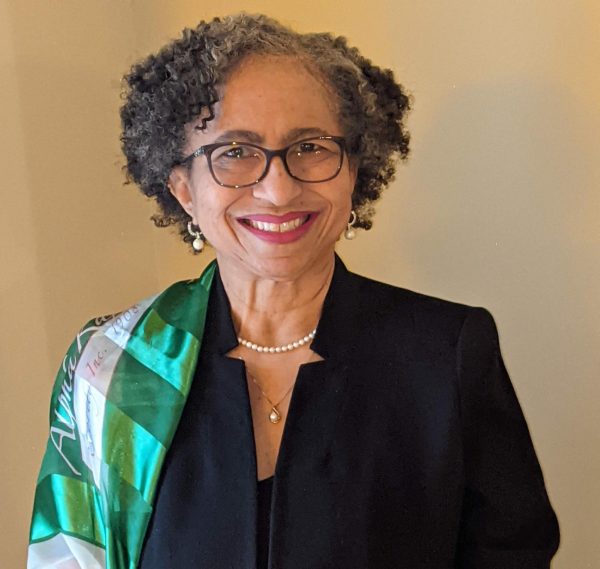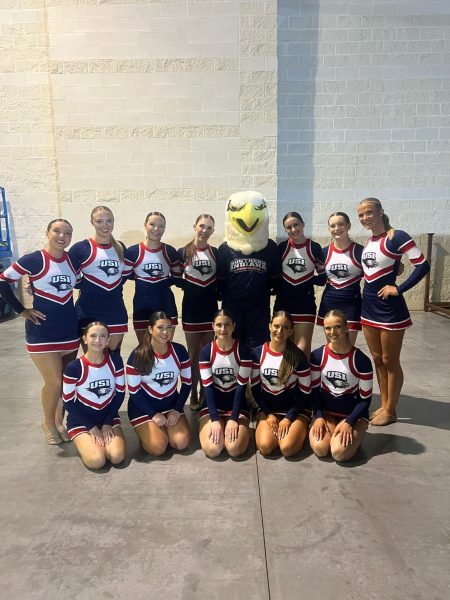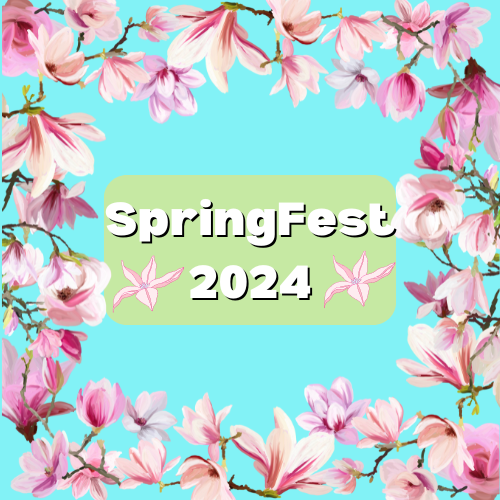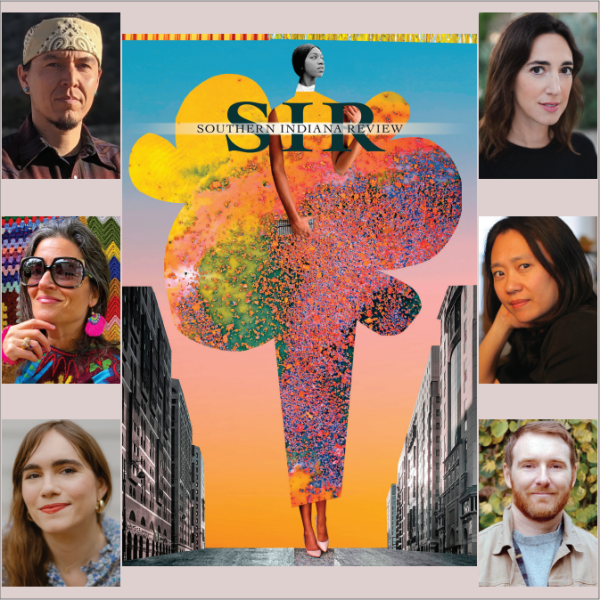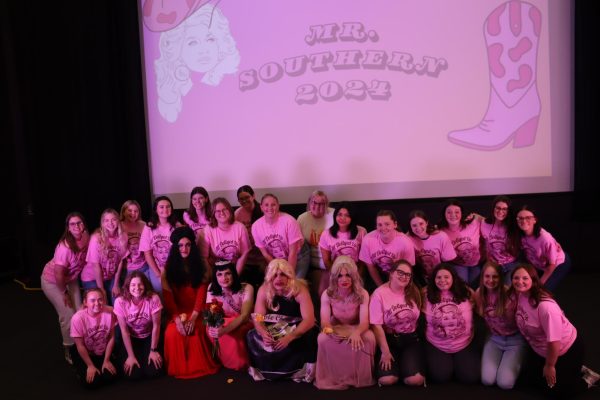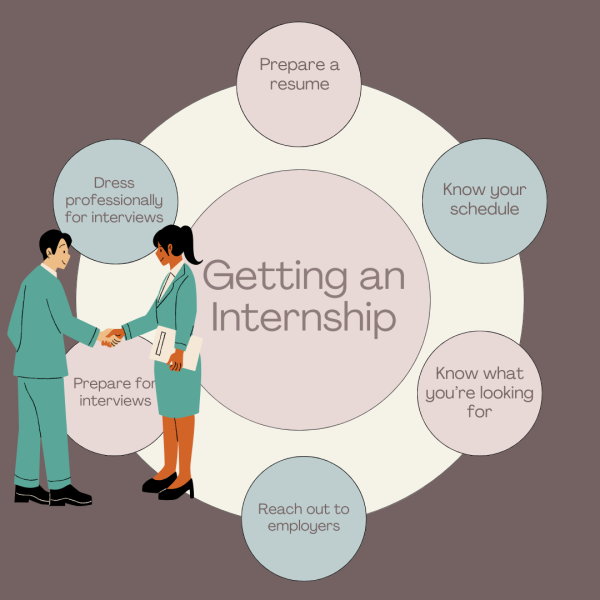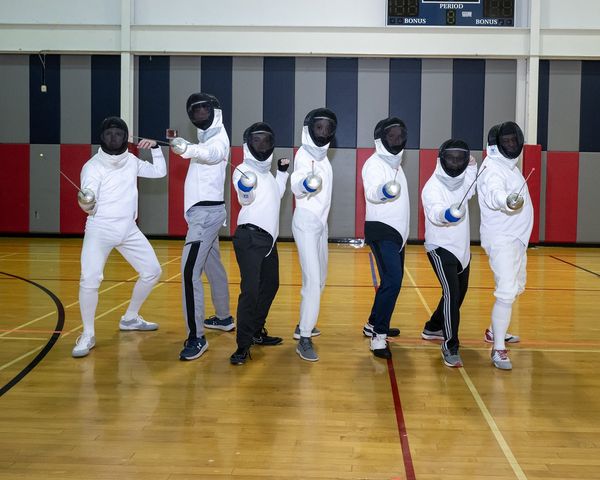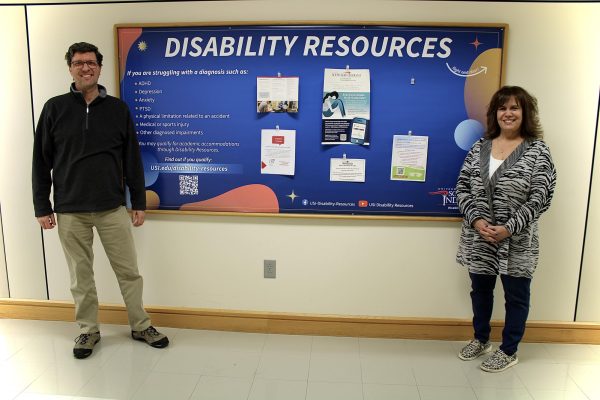Growing in cultural awareness, mutual learning
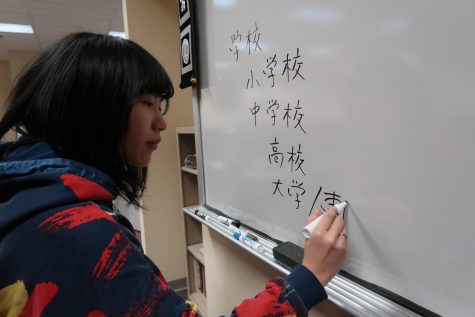
Shiho Hironaka, a first-year graduate student studying second languages, writes kanji on the board during a tutoring session.
Professor Kaho Sakaue wanted to help students to better understand the cultures around them.
As a second-semester faculty member from Japan, Sakaue introduced a conversation program to USI at the beginning of the spring semester to challenge students to break outside of formalities.
Conversation Partner is an unofficial program recently thriving amongst study abroad students from Japan and students studying Japanese at USI. The program was formed to improve cross-cultural understanding by pairing Japanese and American students up to develop their language abilities through mutual learning.
Sakaue came up with the idea from her own study abroad experiences in Nevada, and discussed it with Japanese teacher Shoko Amioka, who experienced a similar program in Arizona.
After bringing up the idea to supervisors and receiving a thumbs up, Sakaue also spoke to the Spanish professors and French professors about it.
“When I was studying in Nevada as a study abroad student, we had a program like this where we had partners,” Sakaue said. “I was able to travel and experience American culture this way, and I was even able to visit my partner’s family for Thanksgiving.”
Sakaue is still good friends with her conversation partner, and wants students at USI to be able to develop similar relationships. She said she has noticed the trouble international students have with transportation at USI, and hopes by making friends, the students can travel and experience more of U.S. culture.
“I hope that the Japanese students and American students get along and get to know each other. I’d like the Japanese students to get their fill of Evansville and U.S. culture, and get more interested in learning more,” Sakaue said. “For American students, I hope they make some friends they can speak Japanese to and speak more casually with. That way, they can learn more about Japanese culture that they don’t get to experience in class, and practice more Japanese.”
Sean McDicken, a senior graphic design major and vice president of the Japanese club, studies Japanese because of his fascination with language and the value he finds in communicating with others.
So far, he has found the conversation program beneficial in learning new things about the Japanese culture and language.
“I think it’s a really cool idea just to be able to interact with Japanese students and tutors that I usually see in an academic setting. Now I can see them more casually, hang out and learn more about them to focus less on studying the language and more on making friends,” McDicken said.
Because there are many different cultures and ways of living in the world, McDicken believes that understanding the differences between people is the best way to relate to them.
“We need to be able to communicate with as many people as possible and just to have a better understanding of the world around us,” McDicken said. “I think learning a foreign language is a way to open up that door of understanding more of the things around us.”
McDicken has already learned new things from interacting with his partner this semester. Having met up once on campus during a day of no classes, McDicken’s partner commented on how empty the university seemed and how he noticed that nobody was working.
“He said how it was never like this in Japan because people were always working. I asked him if Japan ever had vacations and days off for things like Christmas, and he said it was basically only the day after New Years. It’s cool how different people are,” McDicken said.
Study abroad student Shiho Hironaka, a first-year graduate student studying second languages, also enjoys having a partner to practice English with. When Hironaka isn’t in classes, she can sometimes be found in the Liberal Arts language lab tutoring students studying Japanese.
“I enjoy being a tutor because we can meet Japanese learners and share videos and interests in other languages,” Hironaka said.“For me, as a Japanese student here, I don’t know any American perspectives. Be here, we can talk and exchange ideas.”
Hironaka enjoys learning about American culture at USI, and thinks the conversation program allows you to interact with your partner even if you’re unable to meet up at the language lab or anywhere else at the time. Through social media and face-to-face interactions, Hironaka exchanges various cultural information with her partner.
“We can divvy up our grammars and vocabularies,” Hironaka said. “It’s fun. We can spend time together and have fun getting to know each other and our cultures. Our perspectives are based on our cultures, so even if I have a certain idea, someone else may have a different view of that idea and I like to ask about it.”
The Conversation Partner program allows students to choose specifically of how much they would like to meet up with their partner, how many partners they would like and even if they have a specific gender preference. Sakaue thinks that if more students joined the Japanese club, if could boast more awareness of the program.
“We would like to have more American students learn Japanese. We encourage more to come to Japanese Club,” she said.
While the program is limited to Japanese students right now, Sakaue and students hope that the program will be a success and influence the other language departments to set up a similar application for their students.
Even though the application for the program is now past the official due date, she hopes more students will get involved and that the program will continue on next semester to help out more students with their studies.
“It would be great if the other language departments did this too. When I was studying, it was for all languages. It would be great if students wanted to study other languages as well,” Sakaue said.

